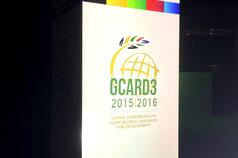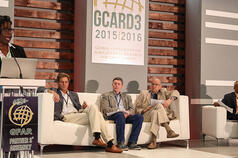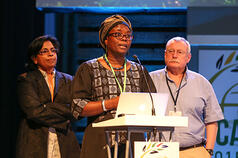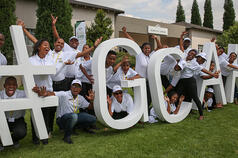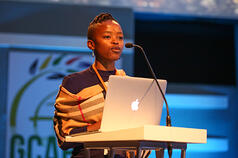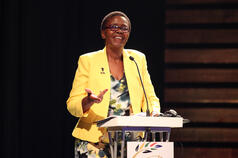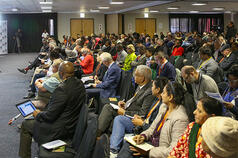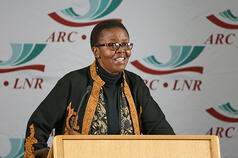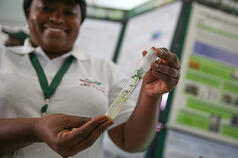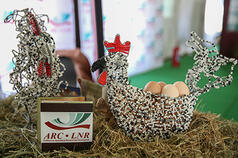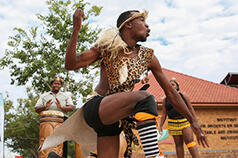The Third Global Conference on Agricultural Research for Development (GCARD3) took place on 5-8 April 2016 in Johannesburg.
The entire GCARD process including the final global event was led by the Global Forum on Agricultural Research (GFAR) and the CGIAR, both GODAN partners, and the global event was put together with the support of the Agricultural Research Council of South Africa.
GCARD3 MEDIA RELEASE - April 11, 2016
International representatives from key sectors in agri-food research and innovation have pledged to 'leave no one behind', by committing to create more opportunities for rural women and youth, to equip tomorrow's farmers and researchers with the skills they need, and to push for more investment so rural communities can grow and flourish.
The GCARD3 Global Event is well under way. For a daily wrap-up of the proceedings plus photos visit: http://www.iisd.ca/agriculture/gcard3/
Keep an eye on the GFAR Blog for coverage of the day’s sessions from our roving team of social media reporters: http://blog.gfar.net/
Follow GCARD3 on Twitter: #GCARD3
On Friday morning, following presentations by two young “agripreneurs,” participants reconvened in thematic groups to finalize their messages and collective actions for inclusion in the GCARD3 Outcomes Statement.
In the afternoon, participants convened in plenary for presentation of the Youth Agripreneurs Project (YAP) awards. Peter Casier, Independent Consultant, introduced five of the six YAP finalists from Barbados, India, the Philippines, Ethiopia and Kenya who each described their winning projects.
GCARD3 MEDIA RELEASE - April 8, 2016
Farming needs a change of image if it is to attract more young people as a career, according to young agricultural leaders addressing an international meeting on global agricultural research for development held in Johannesburg this week.
GCARD3 MEDIA RELEASE - April 8, 2016
The two greatest challenges facing the world today are malnutrition and climate change, and it is going to require a concerted approach from science and society to deal with them, according to Dr Lindenwe Majele Sibanda, CEO of the Food, Agriculture and Natural Resources Policy Analysis Network (FANRPAN).
On Thursday, GCARD3 participants relocated to the Agricultural Research Council South Africa (ARC) Roodeplaat Campus, for a special programme commemorating the ARC’s 25th anniversary.

